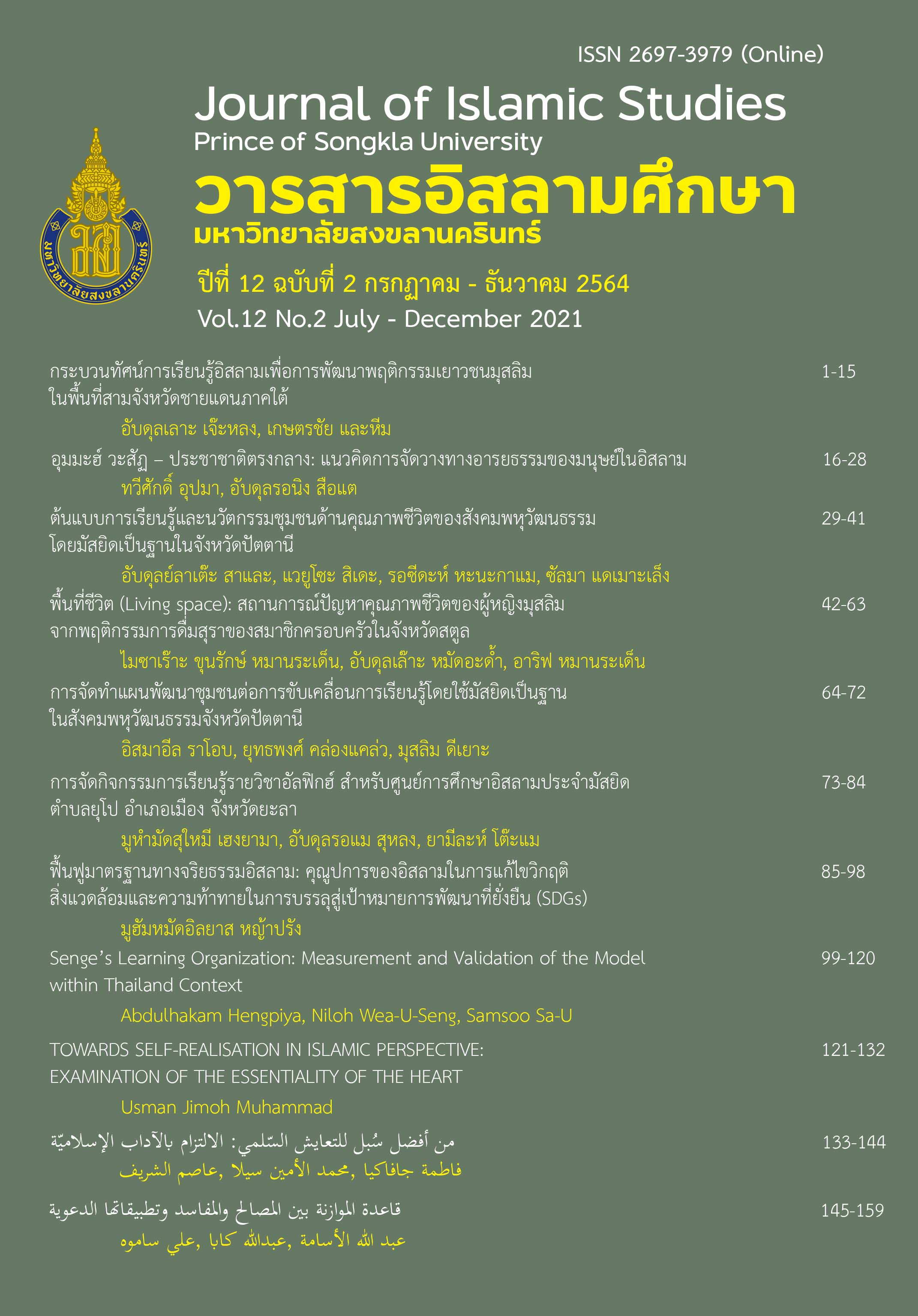Ummah Wasat – The Middle Nation: The concept of human civilization emplacement in Islam
Keywords:
Civilization, Islamic nation, Middle Nation, Muslim World, QiblahAbstract
Objective This research paper aims to study the concept of civilization in Islamic teachings through the study of the Quran's verses on building a ‘Middle Nation’ to open up new areas of human civilization.
Methodology This study is a documentary research with methods for studying the various Quranic exegesis, both the main works and the specific writings on the subject. It wants to sum up the "Middle" concept that lays out the emergence of Islamic civilization.
Research findings The study found that the concept of "Middle" of the Islamic nation has emerged as a new development in the history of human civilization. It has created a glorious and just nation in history and has brought about a wide civilization exchange.
Applications This research has helped to create the Middle Nation theory to explain the development of civilization through the role of the Islamic nation. It also gave a clearer understanding of the interactions between civilizations.
Keywords: Civilization, Islamic nation, Middle Nation, Muslim World, Qiblah
References
Arnold, T W. (1896). Preaching of Islam. Constable.
al-Bukhārī, Muhammad Ibn Ismā‘īl. (1422). Sahīh al-Bukhārī. Dār Tawq al-Najāh.
Ibn Hanbal, Ahmad. (2001). Musnad al-Imām Ahmad (al-Muhaqqiq: Shu’ayb al-‘arnaūt). Muazzah al-Risālah.
Ibn al-Jawzī. Abū al-Faraj. (1984). Zād al-Masīd. al-Maktab al-Islāmī.
Ibn Kathīr , Isma‘īl. (2002). Tafsīr al-Qur‘ān al-‘azīm. Dār Tayyibah.
Ibn Taymīyah, Ahmad. (1995). Majmu‘ Fatāwa. Majma’ al-Mālik Fahd.
Goodrich, Luther Carrington. (2553). A Short History of the Chinese People. Kledthai Publishing.
al-Tirmidhī , Muhammad Ibn ‘Isā. (1975). Sunan al-Tirmidhī. Matba’ah al-Halabī.
al-Mubarakfūri, Safiyy ar-rahmān . (2562).الرحيق المختوم [Ar-Raheeq Al-Makhtum]. White Channel Publishing.
Muslim, Abū al-Ḥasan Ibn al-Ḥajjāj. (n.d.). Ṣahīh Muslim. Dār al-Ihya’ al-Kutub al-‘Arabiyah.
al-Nadwī, Abul Ḥasan Alī. (n.d.) Madhā Khasir al-‘Ālam bi al-Inhiṭāṭ al-Muslimīn. Maktbah al-īmān.
al-Nawawī, Yahya. (1392). Sharh Ṣahīh Muslim. Dār al-Turāth al-‘arabī.
al-Nasā’ī, Muhammad Ibn Shu‘ayb . (2001). Sunan al-Kubrā. Muazazah al-Risālah.
al-Qurtubī, Abū ‘Abdullāh. (n.d.). al-Jāmi’ li Ahkam al-Qur’ān. Dār al-Fikr.
al-Sa‘dī, ‘Abd al-Rahmān. (n.d.). Taysīr al-Karīm al-Rahmān fī Tafsīr Kalām al-Mannān. Mu’assasat al-Risālah.
al-Sāyi , Ahmad abd al-Rahīm. (1977). Kitāb al-Hadhārah al-Islāmīyah. al-Jāmiah al-Islāmiyah bi al-Madīnah al-Munawarah.
al-Shawkānī, Mahammad Ibn Alī. (2004). Fath al-Qadīr. Dār al-Ma‘rifah.
al-Ṭabarī , Mahammad Ibn Jarīr. (n.d.). Jāmi‘ al-Bayān ‘an Ta’wīl Āyāt al-Qur’ān. Dār al-Ma‘ārif.
al-Tahawī, abu jafar. (1414). Matn al-Tahawiyah. Maktbah al-Islami.
al- Tuwayyirī , Abd al-Azīz Uthman. (n.d.). Wasitīyah al-Islām wa Samahtuhu wa Dahwatuhu li al-Hiwār. Wisarah al-Awqāf.
al- Umr , Nāsir Umar. (n.d.). Wasitīyah fi Daw’ al-Qurā’n al-Karīm. Wisarah al-Awqāf.
Downloads
Published
How to Cite
Issue
Section
License
Copyright (c) 2021 Journal of Islamic Studies, Prince of Songkla University

This work is licensed under a Creative Commons Attribution 4.0 International License.
All articles Published in The Journal of Islamic Studies are author’s opinions, and not the responsibility of the Faculty of Islamic Sciences nor the editorial board. However any citation should be referred to the journal.
















